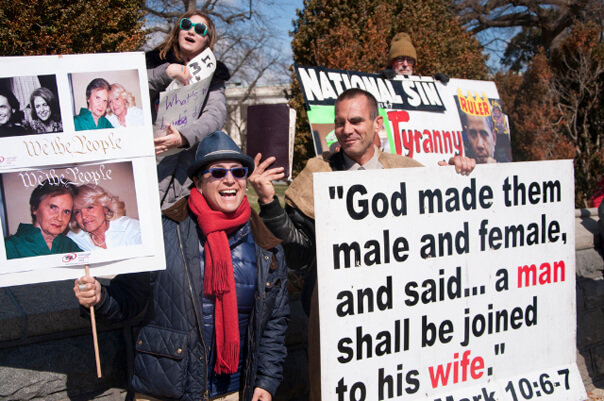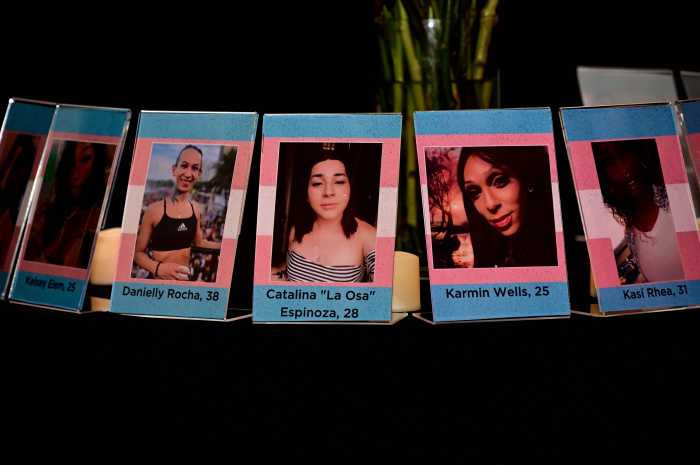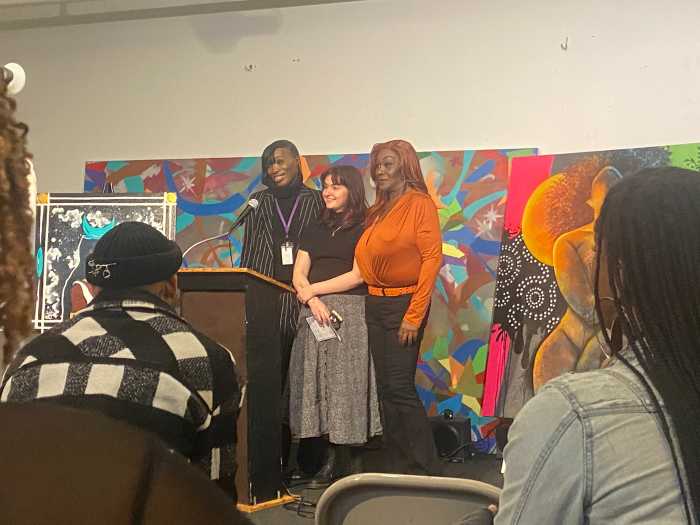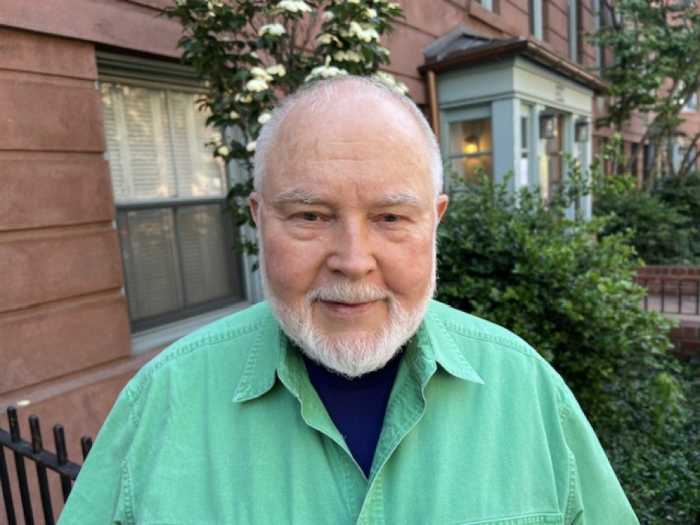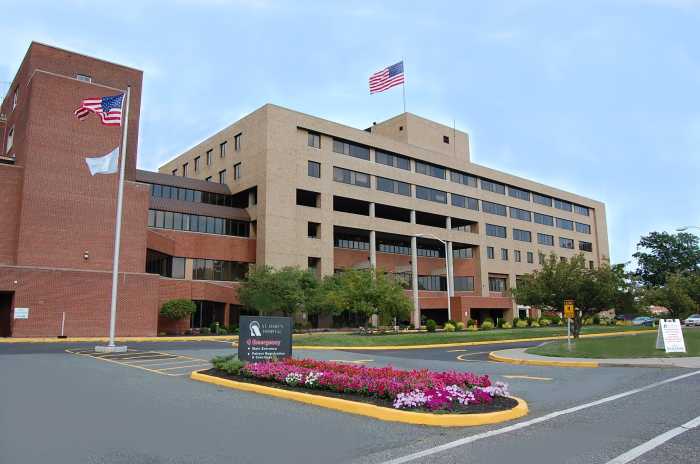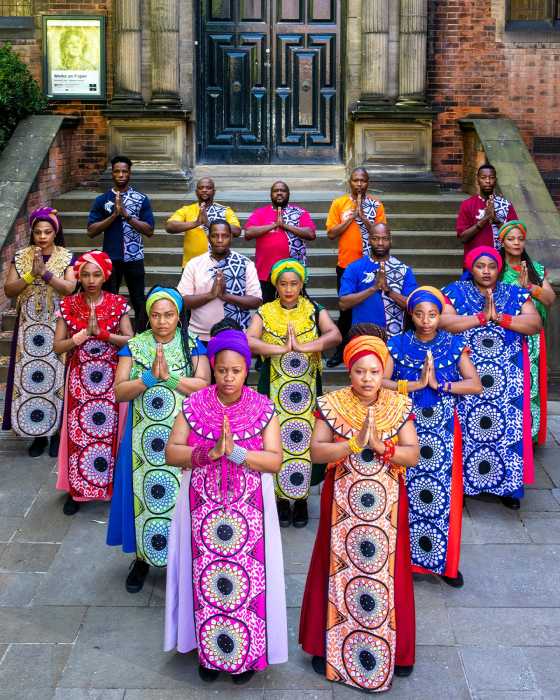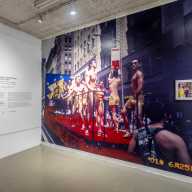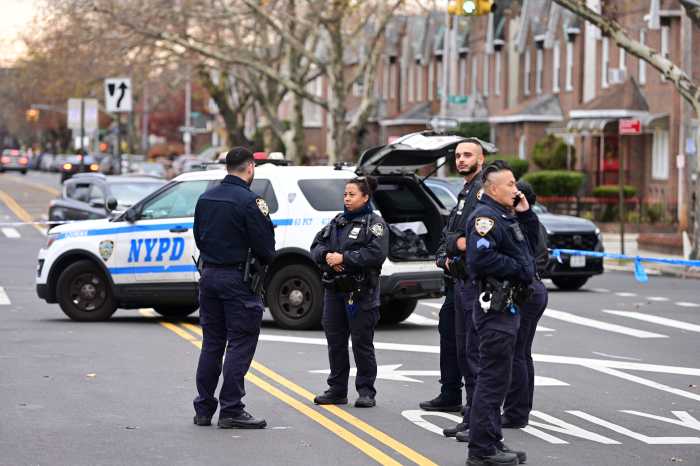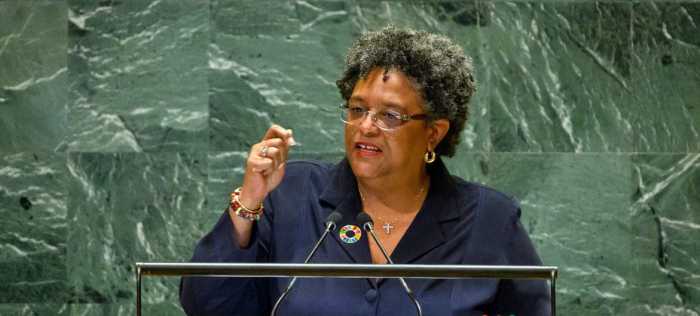Lisa Cannistraci at home in her West Village bar.
The way Lisa Cannistraci tells it, if not for a rainstorm back in the mid-‘80s at a moment she happened to be on Hudson Street, her West Village bar Henrietta Hudson would never have been.
She was working as a bartender at a Wall Street establishment at the time, and one evening, after a successful shift, was in the Village when a sudden downpour forced her to seek shelter in what was then called the Cubbyhole. She ordered a Remy neat and a black coffee, and the manager noticed. Cannistraci agreed to take on a couple of shifts, even though they were slow ones.
“Cubbyhole was the only lesbian bar in town, and back then you had to go to a lesbian bar to be safe,” she recently recalled. “I had never wanted to own a bar, but Henrietta Hudson was a calling. It was not a desire or preconceived notion.”
In lesbian nightlife, community activism, and big, ol’ parties, Henrietta Hudson owner's been at it a long time
She quickly racked up money and created a loyal following. Owner Elaine Romagnoli noticed that, too, and moved her to Thursday and Friday night shifts. Cannistraci left her Wall Street gig and worked at Cubby until the bar was shuttered a few years later. When Romagnoli opened up Crazy Nanny’s on Seventh Avenue, she moved over with her and next tended bar at Kelly’s Village Tavern. The customers followed Cannistraci each step of the way.
In that pre-Facebook era, she used to take down the names and numbers of the women she served to create a client list. She also got to know Minnie Rivera, a lesbian nightlife and networking pioneer who owned bars including Garbo, Network, and Pandora’s Box.
“She saw something in me,” Cannistraci said, recalling one particular evening. “They were supposed to go to the airport, but I was engaging. They hung out with me instead, and it stuck in her mind.”
Soon after that, Rivera approached her about re-opening a bar at the old Cubbyhole locale. They went to dinner, and the rest is history. On Halloween night, 1991, Cannistraci and Rivera opened up Henrietta Hudson at the corner of Morton Street.
“I feel like I have been at 438 Hudson Street since March 1985, with maybe a year break out of that,” Cannistraci told me. “This is my 28th year here. If it didn’t rain, I would never have walked in… and Henrietta’s definitely would not have been here.”
Unlike some bar owners, who operate in Manhattan and reside in the suburbs, Cannistraci lives near where she works —directly above it, in fact. She’s a longtime businesswoman, but also considers herself an activist and someone willing to put her money behind the causes she believes in. She traces her activist roots back to the 1992 boycott against Colorado for its adoption of a referendum prohibiting anti-discrimination ordinances protecting gays.
“If you lived in Colorado, you couldn’t boycott it or you’d get fired,” she said. “So we did it, and it worked. There was $90 million in lost revenues at ski resorts in just a few weeks.”
Martina Navratilova initially supported the boycott, but then pulled out, noting that the state’s tourist areas hardest hit were generally liberal communities that had not voted for the referendum. The tennis star said as much when she stopped by Cannistraci’s bar in 1992; she sent Navratilova packing.
Lisa Cannistraci at home in her West Village bar and going toe-to-toe with an anti-gay protester outside the Supreme Court this past March.
Cannistraci’s activism has also engaged issues closer to home. Since 2002, she has served on Manhattan’s Community Board 2, focusing on LGBT, youth, and elderly issues on the Social Services Committee and on neighborhood concerns generally as part of the Parks and Waterfront Committee.
State Senator Brad Hoylman, a former CB2 chair, called Cannistraci “an indefatigable member of the West Village… She's been a longtime active member of the community board, where her insight on small business issues and commitment to LGBT causes have been invaluable.”
Hoylman cited, in particular, the assistance she’s provided to Stormé DeLarverie, who is 92 and traces her activism at least as far back as the opening night of the Stonewall Riots. DeLarverie lived in the Chelsea Hotel for many years, but when she developed cognitive problems, Cannistraci stepped up to secure legal guardianship and make sure she found a home setting where appropriate care was available. DeLarverie now resides in an assisted living residence in Brooklyn.
Hoylman termed the assistance Cannistraci gave the iconic activist “just one example of Lisa's humanity and commitment to those who've helped pave the way for the rest of us.”
Cannistraci has also been active in the fight for equal marriage rights, both in New York and nationally. Serving as a board vice president of Marriage Equality USA (ME/ USA), she traveled to Washington with Edie Windsor when Windsor’s challenge to the federal Defense of Marriage Act was argued before the Supreme Court on March 27.
“She is really an amazing board member,” said Cathy Marino-Thomas, the board co-president. “She joined us two or three years ago, and always more than exceeds her fundraising responsibilities.”
When Marriage Equality New York merged with ME/ USA after enactment of the state’s equal marriage law in 2011, Cannistraci’s “business sense was very valuable to us,” Marino-Thomas said. “She helped put together meaningful budgeting, brings high-profile sponsorship to events, and buys her own tickets personally — she has really been the board member everyone dreams of.”
Cannistraci and Marino-Thomas canvassed door-to-door last fall in the successful drive to protect the new marriage equality law in Maryland against a referendum effort to overturn it.
Noting the way she has opened Henrietta’s doors to fundraisers for community groups like ME/ USA, the Empire State Pride Agenda, and the New York City Anti-Violence Project, Hoylman said, “She is incredibly generous to the neighborhood with her space. I can’t count the number of times I’ve been at Henrietta Hudson’s for a community or political event.” (She invites charities to contact her at info@henriettahudson.com if they are trying to put a fundraiser together.)
Cannistraci’s immediate preoccupation, however, is an event scheduled for Saturday evening, June 29, the eve of the big Pride Parade in Manhattan. She is planning for the 2,500 women expected to flock to the Beekman Beach Club at the South Street Seaport after the Dyke March for Siren — The NYC Pride Beach Party.
“It’s a very international crowd, and I’m creating a great space for the world of lesbians to hang out,” Cannistraci said. “It’s big enough, it’s beautiful, magical, and the best party of the year. You can enjoy the beach or lounge on inflatable couches, and you have a view of the river and three gorgeous bridges.”
Party producer Sir Sabrina Haley said she and Cannistraci worked together on many parties and political events over the years before joining forces on Siren.
“We ended up spending some downtime during the summer at her beach house, and she mentioned she wanted me to get on board,” Haley said. “She offered me the chance to become a partner to throw this big, awesome party, and that’s how Siren happened!”
She explained that the party’s unique location was a big draw in her mind.
“It’s great because you want to be outside on Pride,” Haley said. “Here, you can dance under the tent side but you can also can sit on the beach under the bridges.”
Haley has secured DJs Roxy Cottontail, a former party promoter who mixes up dance, electro, hip-hop, and reggae, and Heather McAlpin, a house music aficionado, to spin while guests dance the night away on the venue’s expansive dance floor. Haley praised the two women as “musically, very ahead of the game.”
Siren — The NYC Pride Beach Party will be held June 29 from 9 p.m.-4 a.m. at the Beekman Beach Club at the South Street Seaport. Tickets are $25 at boxofficetickets.com/siren, or $30 at the door. For more information, visit the party’s Facebook page. A portion of the evening’s proceeds will benefit Marriage Equality USA.

